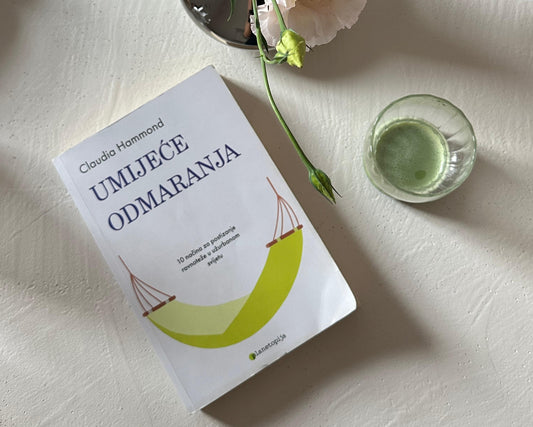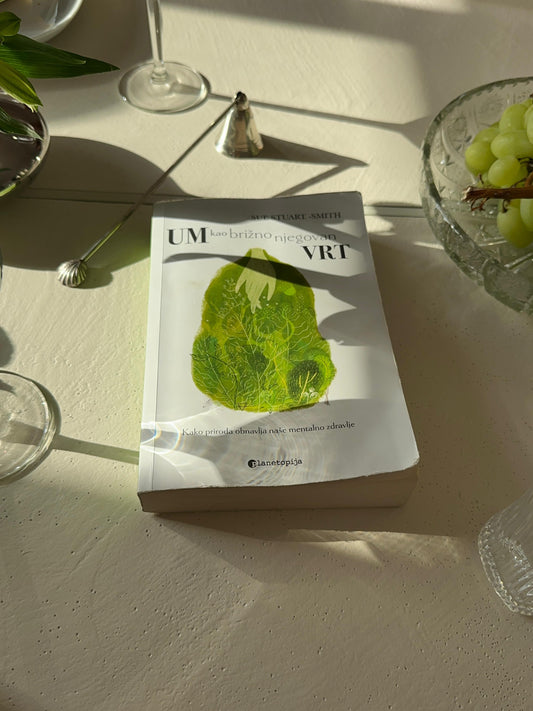When Eyes and Heart Grow Tired: Wabi-Sabi for a Time That Keeps Catching Up With Us
I leave “the house at the end of the world”, walk across a long yard, slip past the last fence and step into a meadow where seventeen walnut trees grow. Some are twice my age, some younger, yet all look as if they have always been here.
I turn left: the sun bursts through the crowns, revealing an endless field. I inhale: the arrogant scent of real summer—humidity, soil, plants racing upward. And that elusive feeling arrives, the one we all try to hold, the one that makes everything else disappear for a moment, the one no words can trap.
Thanks to Materia Book Club and our June pick, I discovered that in Japan this feeling has a name: wabi-sabi, and it carries a beautiful philosophy of living.
Earlier I wrote about perfection for Materia —about that silent yet stubborn force that shapes us from the outside while exhausting us within. About feeling late to life. About how others seem to have reached clarity, stability, success while we quietly try not to lose faith in our own process.
Unwittingly, while we measure progress, compare, create new tasks for our minds, we drift away from the only place truly available to us: the present moment.

Why wabi-sabi?
Beth Kempton’s book reminds us of what we once knew but stopped practising: things don’t have to be clear to be worthwhile; we don’t need to know the ending to respect the path; growth isn’t always linear or visible.
Some of our biggest shifts happen quietly—in words unspoken, reactions held back, moments we stay with ourselves although it’s uncomfortable.
Kempton writes:
“Life’s pace keeps accelerating, stress levels are higher than ever, and we are increasingly obsessed with money, titles, looks and endless accumulation. We are over-tired, over-tense, over-loaded.”
In that context, wabi-sabi feels like a gentle revolution. Rooted in Zen and the Way of Tea, it helps us see beauty in imperfection, cherish simplicity and accept the fleeting nature of everything. It doesn’t teach how to “achieve peace” but how to recognise it in what is already around us.

A crisis of confidence
From the moment we wake until we collapse into bed we are fed messages about how to look, dress, eat, earn, love and parent. Many of us probably spend more time thinking about other people’s lives than living our own, Kempton notes—and the line stings because it is true.
At the June Materia Book Club we were reminded that we’re allowed to exist without a definition—value isn’t proved through productivity, and it is enough to be here, messy, unsure, real.
Simplicity has become complicated
The book turns us toward simplicity, from home décor to life approach. Who would have thought we’d live in a time when simple became the most complicated?

We don’t need to hyper-produce our lives 365 days a year
Seasons remind us we don’t have to strive all the time. There is a time for creating and a time for seeking inspiration; for noise and for silence; for focus and for day-dreaming.
Is it normal to force constant growth the whole year, both at work and at home? If we are always producing, how will we hear our bodies? How will we know what we truly want and what we do by inertia?
It is enough to align with the rhythm and trust that even silence has a purpose.

We bought the marketing trick that we’re living wrong
One of the book’s richest chapters asks what to accept and what to release. Life, relationships, careers, health, finances, views—everything shifts. Holding the past or cementing the present is futile and draining. Every day is a chance to drop what no longer carries us and welcome what we’re now ready for. Being adaptable is not weakness; it has become a rare strength.
Modern marketing tells us to hide ageing, treat fatigue as failure, iron out wrinkles instead of respecting them. Yet inner beauty, when it surfaces, outshines any mask.

Keeping a moment doesn’t mean stopping it from passing
We all try to hold what matters: a second of beauty, calm, laughter. It shapes us—and evaporates. The tighter we grip it, the faster it slips. Wabi-sabi shows that keeping a moment is not freezing it in time but being fully inside it while it lives, with no camera, no phone—just presence. Its value lies in being lived, not archived.
Nothing lasts forever, and that is why it matters. To keep a moment, in wabi-sabi spirit, is to admit it will end and love it more for that. No urge to turn it into content, no demand for a lesson—just letting it move through us, remaining where it belongs: in experience, not in memory.










